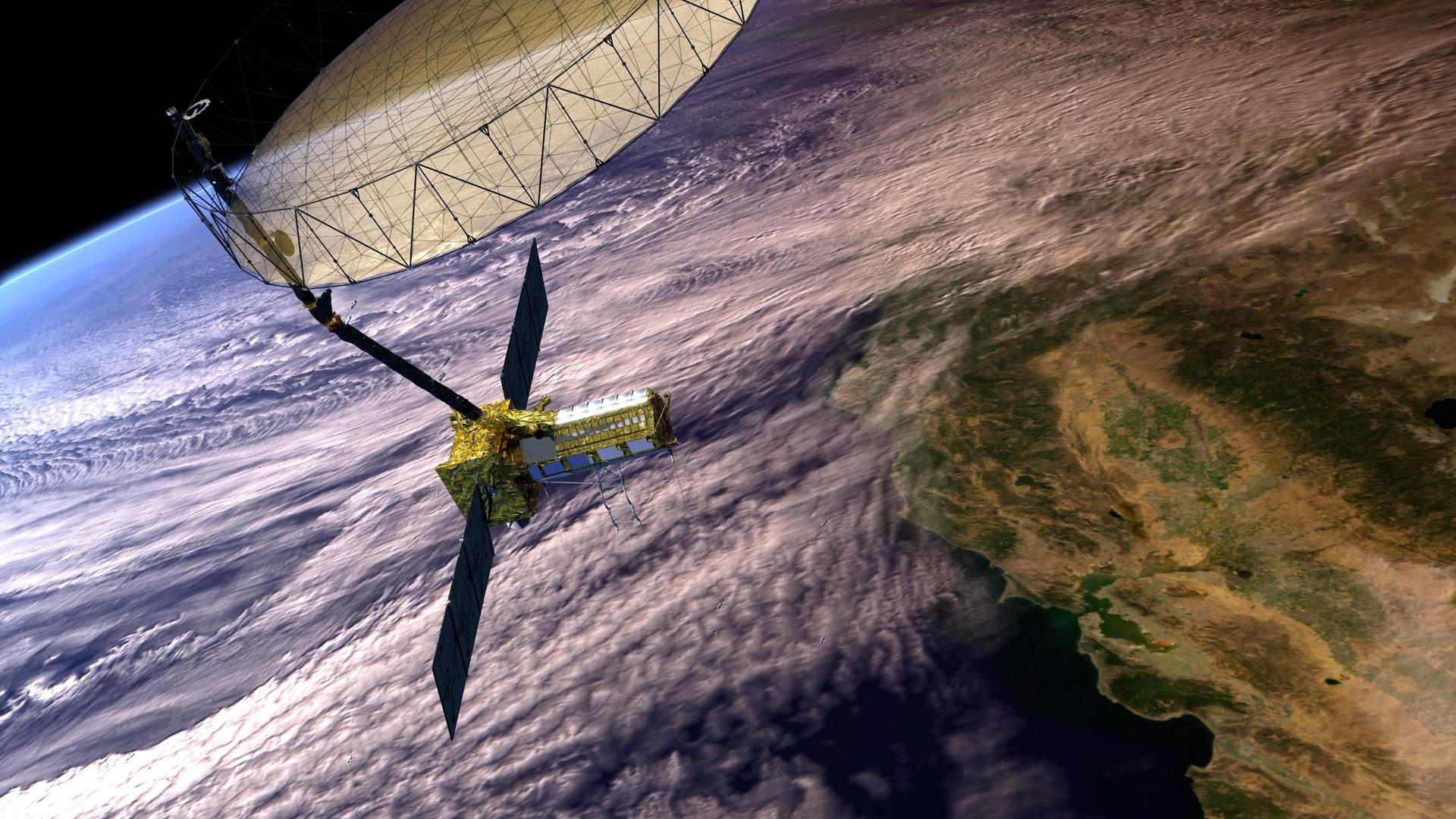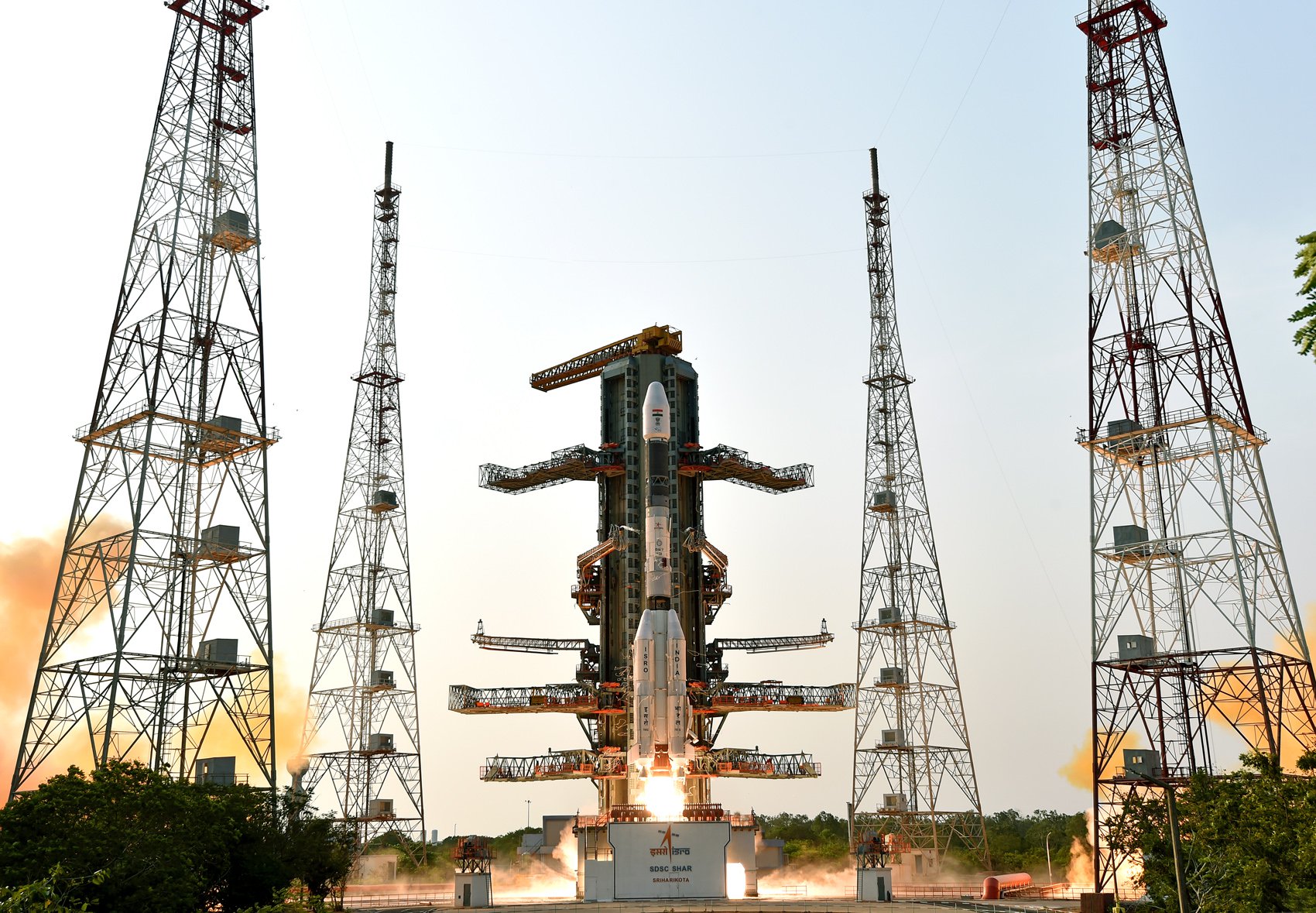
Press Event
NASA NISAR News Conference
Online GSLV Mk II | NISAR (NASA-ISRO Synthetic Aperture Radar)
NASA-hosted news conference to discuss the upcoming NISAR (NASA-ISRO Synthetic Aperture Radar) mission.
The Earth-observing satellite, a first-of-its-kind collaboration between NASA and ISRO (Indian Space Research Organisation), carries an advanced radar system that will help protect communities by providing a dynamic, three-dimensional view of Earth in unprecedented detail and detecting the movement of land and ice surfaces down to the centimeter.
The NISAR mission will lift off from ISRO’s Satish Dhawan Space Centre in Sriharikota, on India’s southeastern coast. Launch is targeted for no earlier than late July.
Related Information
GSLV Mk II | NISAR (NASA-ISRO Synthetic Aperture Radar)
Indian Space Research Organization | IndiaSatish Dhawan Space Centre, India
July 30, 2025, 12:10 p.m.
Status: Launch Successful
Mission:
The NASA-ISRO Synthetic Aperture Radar, or NISAR satellite, will use advanced radar imaging to map the elevation of Earth's land and ice masses 4 to 6 times a month at resolutions of 5 to 10 meters. It is designed to observe and measure some of the planet's most complex natural processes, including ecosystem disturbances, ice-sheet collapse, and natural hazards such as earthquakes, tsunamis, volcanoes and landslides. Under the terms of the agreement, NASA will provide the mission's L band synthetic aperture radar (SAR), a high-rate telecommunication subsystem for scientific data, GPS receivers, a solid-state recorder, and a payload data subsystem. ISRO will provide the satellite bus, an S band synthetic aperture radar, the launch vehicle, and associated launch services.
Sun-Synchronous OrbitFalcon 9
Starlink Group 10-56
Space Launch Complex 40 - Cape Canaveral SFS, FL, USAA batch of 28 satellites for the Starlink mega-constellation - SpaceX's project for space-based Internet communication system.
Starship
Flight 10
Orbital Launch Mount A - SpaceX Starbase, TX, USA10th test flight of the two-stage Starship launch vehicle.
Falcon 9
NAOS
Space Launch Complex 4E - Vandenberg SFB, CA, USANAOS (National Advanced Optical System) is the space component of Luxembourg's governmental dual-use observation satellite system LUXEOSys (Luxembour…
Long March 8A
SatNet LEO Group 10
Commercial LC-1 - Wenchang Space Launch Site, People's Republic of ChinaA batch of 9 Low Earth Orbit communication satellites for the Chinese state owned SatNet constellation operated by the China Satellite Network Group.…
Falcon 9
Dragon CRS-2 SpX-33
Space Launch Complex 40 - Cape Canaveral SFS, FL, USA33rd commercial resupply services mission to the International Space Station operated by SpaceX. The flight will be conducted under the second Commer…
Electron
Live, Laugh, Launch
Rocket Lab Launch Complex 1A - Rocket Lab Launch Complex 1, Mahia Peninsula, New Zealand'Live, Laugh, Launch' is the second of two dedicated missions on Electron for a confidential customer in 2025. Possible customer candidates include E…
Falcon 9
Starlink Group 17-6
Space Launch Complex 4E - Vandenberg SFB, CA, USAA batch of 24 satellites for the Starlink mega-constellation - SpaceX's project for space-based Internet communication system.
Falcon 9
OTV-8 (X-37B) (USSF-36)
Launch Complex 39A - Kennedy Space Center, FL, USAEighth flight of the X-37B program. The X-37B is a dynamic and responsive spacecraft responsible for conducting a range of tests and experiments …
Angara 1.2
Kosmos 2590-2593 (?)
35/1 - Plesetsk Cosmodrome, Russian Federation4 classified satellites for the Russian military.
Soyuz 2.1b
Bion-M No. 2
31/6 - Baikonur Cosmodrome, Republic of KazakhstanBion-M is the next generation of Russian biological research satellites. While retaining the Vostok/Zenit-derived reentry module of the earlier Bion,…




